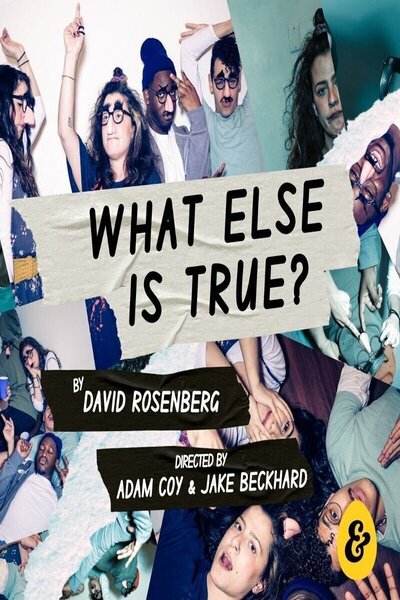
Critic Reviews (5)
“The pleasures of ’What Else Is True?’ come from its tender attention to these moments: the swells of almost overwhelming possibility and platonic love that break over our young hearts like waves. It’s sincere, with a bighearted commitment from its actors. Gameness isn’t a problem.”
Read more
Another problem with the play is that although the subject is “Improv” we never actually witness any, just theater games to prepare for group improvs. Games like Mind Meld, Mating Call, 99 Problems, Zip Zap Zop and the Pattern Game are practiced but as the rules are not made clear, many in the audience may be confused by what is happening. Throughout the play we are told that Miles is the most brilliant of them all, based on his auditions and performances, but except for a brief moment in the next to last scene in which he performs two characters in an improv alone, we are never shown any evidence of this.
Read more
“We left the theatre with wounds slightly reopened and bathed in a honey balm of nostalgia. And I must mention the epilogue explodes with so much improv wizardry that it makes any of the slow bits totally forgiveable.”
Read more
“I left David Rosenberg's funny, thoughtful play ’What Else Is True?’ with powerful emotions, and stumbled home through a city made more beautiful by the reminder that nothing---friendship, love, perhaps even NY itself---is forever...But I would hate for you to think from this that the play is a downer. On the contrary: this show about a college improv team is playful, hilarious, quirky, and charming.”
Read more
Over the course of numerous brief pointed scenes during two compelling acts, we follow the professional and personal interactions of three male and three female multi-racial New York City college students who are talented improv comedy group members in 2010. This is an affective, substantive and bittersweet play that is performed by a youthful, animated and entrancing ensemble.
Read more



